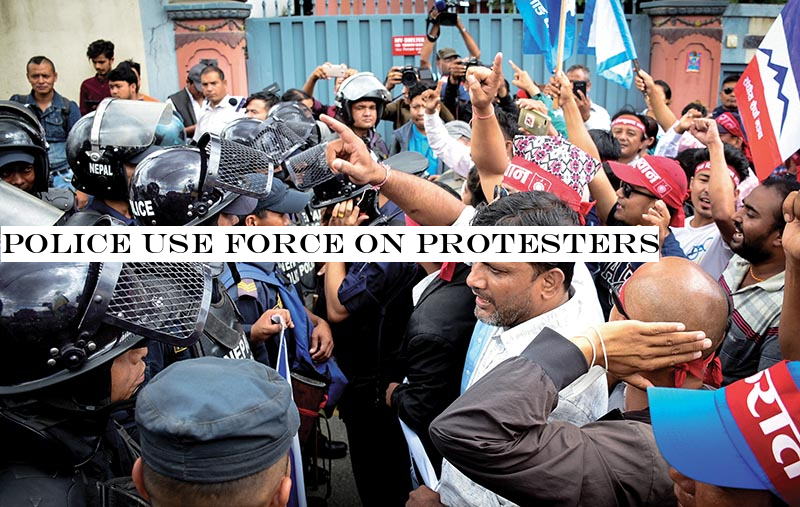INSUBCONTINENT EXCLUSIVE:
Kathmandu, August 13
Police today used force against hundreds of peaceful demonstrators, who had gathered to protest the Federal Public
Service Commission decision to recruit over 9,000 employees for local levels
Their major demand is that FPSC should comply with reservation policy as guaranteed by the constitution in its hiring process.
Tension
rose high on the street outside prime minister official residence in Baluwatar after police began arresting protesters who were leaving the
site after the protest ended.
Suraj Maharjan, Chairman of Newa Pradesh, a sister wing of Samajbadi Party Nepal said police tried to arrest
four of them as they were walking towards their motorbikes after the protest was over
&Seeing police personnel marching towards us other protesters came to our rescue, and a clash erupted,& Maharjan said
People representing indigenous nationalities, women, madhesis, Dalits, people with disabilities and people from marginalised communities
have been staging protests against the FPSC after it published a job advertisement on May 29 to recruit 9,161 staffers for local levels
As per the Civil Service Act, the government is required to allocate 45 per cent of total vacant seats for people representing various
marginalised groups.
Of the 45 per cent seats, 33 per cent should be allocated for women, 27 per cent for indigenous nationalities, 22 per
cent for Madhesis, nine per cent for Dalits, five per cent for people with disabilities and four per cent for people from remote areas.
As
per the law, total number of seats under reservation quota should have been 4,025, but FPSC allocated only 2,262 seats
Save Reservation Campaign, an alliance of organisations including Tarai Madhes National Council and Nepal Federation of Indigenous
Nationalities, is supporting the protest
The agitators are adamant on their demand saying they will not stop until the government scraps the recruitment process.
The post Police use
force on protesters appeared first on The Himalayan Times.

